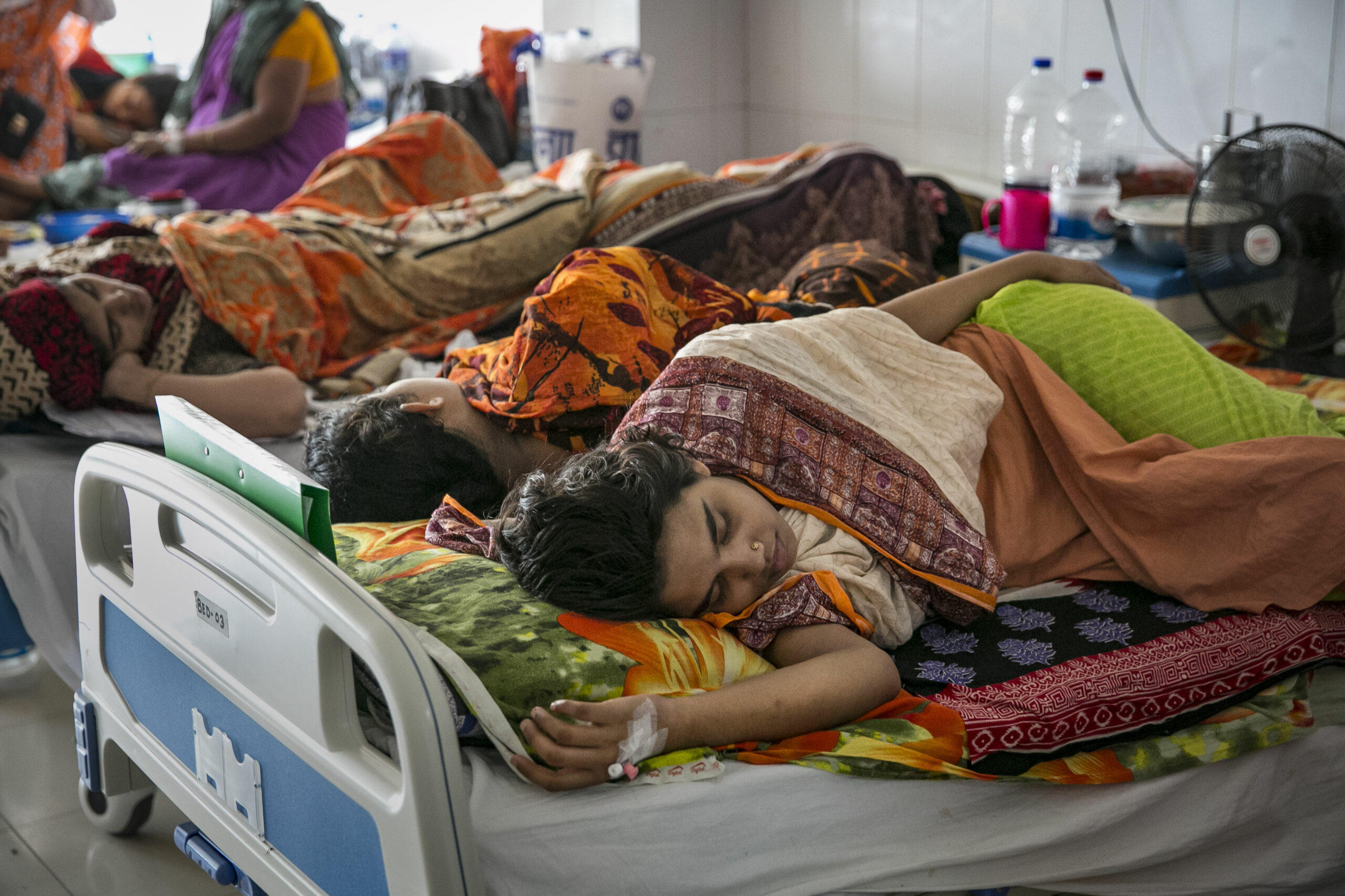An ongoing dengue fever outbreak in Bangladesh is likely to worsen over the coming weeks.
This assessment was issued to clients of Dragonfly’s Security Intelligence & Analysis Service (SIAS) on 7 August 2023.
- An ongoing major dengue fever outbreak will probably peak in late August or early September amid warm weather and monsoon rains
- The level of hospitalisations and deaths from dengue have been particularly high so far in 2023
- The outbreak of the virus is likely to severely strain healthcare services in Dhaka, Chittagong, and Barisal
Official data shows a record number of dengue cases, deaths and hospitalisations so far this year, which epidemiologists have said is due to higher mosquito density. There will also probably be a further increase in cases in September amid warm weather, monsoon rains, and largely inefficient mitigation measures by the authorities. This would put substantial strain on healthcare systems amid reported shortages of doctors, medicines and hospital beds in major cities, including Dhaka, Chittagong and Barisal.
Larger and deadlier outbreak
Dengue fever cases and deaths this year are tracking far higher than numbers during prior large outbreaks in 2019 and 2022. Official data (as of 27 July) shows that Bangladesh has recorded 313 fatalities so far in 2023, compared with 281 during the whole of 2022, which was reportedly the year with the most deaths from dengue on record. With cases and hospitalisations still high as of 7 August, this number is likely to increase over the coming weeks. On 16 July, the Bangladesh Medical Association said that a national public health emergency is underway.

The authorities also appear to be struggling to contain dengue this year. According to the health authorities, the death rate in July was at a five-year high. The government has attempted to stem the spread of the virus in recent months by eliminating breeding sites, using insecticides, and conducting awareness campaigns. But such measures have not proven effective given the current surge of cases. A medical journal study in July suggests that the absence of effective drugs and vaccines has limited the government’s ability to control the outbreak.

The dengue outbreak will probably continue to worsen and peak in late August or early September. The Bangladesh Meteorological Department has forecast further warm weather and heavy rainfall in the coming weeks. This is likely to drive an increase in cases; as warm weather conditions and stagnant water will provide ideal conditions for Aedes aegypti mosquitoes (the primary dengue carriers) to breed and spread quickly, according to medical entomologists. According to a 2018 medical study citing historical data, over 92% of annual dengue cases in Bangladesh are reported between August and September.
Hospitals in major cities struggling to cope
Hospitals in major cities appear to be worst affected by the current dengue outbreak. Dhaka reportedly accounts for about 60% of all hospitalisation and 79% of deaths reported this year so far. Chittagong and Barisal also have over 500 cases per district compared with around a few dozen cases in southern districts. In our analysis, the high prevalence of dengue in Dhaka is partly due to high population density. Dhaka, a city of 17m people, has thousands of building sites, which typically turn into pools of stagnant water during the monsoon season. The health authorities in July found Aedes larvae in 39.37% of high-rise buildings there.

Public and private hospitals in Bangladesh will probably struggle to cope with an increase in hospital admissions, leading to widespread staff shortages and long waiting times. According to health experts cited in local news outlets, the current variant of dengue has a higher death rate compared with variants in recent years. There has already been a large spike in hospital admissions; 66,732 people have been hospitalised so far in 2023, compared with 61,732 in the whole of 2022, based on official data. And footage shared on social media suggests there are long waiting times in hospitals in Dhaka as well as reported shortages of medicines.
Longer term outlook
Larger dengue fever outbreaks are highly likely in Bangladesh in the coming years. This is due to several factors. Studies published in several medical journals suggest the country is likely to experience longer dengue seasons due to climate change and warmer weather. And the government is also likely to continue to struggle to effectively deal with any future outbreak. This is due to persistent and underlying structural and health issues, such as the low number of hospital beds, nurses and physicians, as well as low government health spending as a percentage of GDP.
Image: Patients are seen at Sir Salimullah Medical College Hospital on 18 August 2019 during a previous outbreak in Dhaka, Bangladesh. Photo by Allison Joyce via Getty Images.




